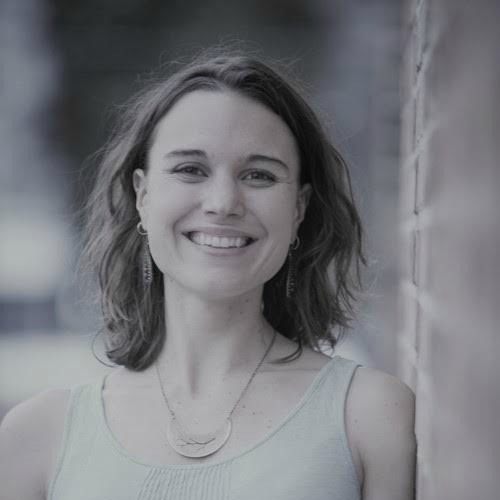In the face of ongoing racism and oppression, polarization, and human-caused destruction of the Earth, giving and taking perspective with authentic curiosity and humility offers us the possibility to generate meaningful change in the world.
Perspective has carried me through a year that has been marked by the pandemics of Covid-19 and racism, political strife, and an escalating climate crisis. I’ve held close – as gently as possible — reliable truisms: Change is the only constant. Life tends toward life. I affirm: I’m not alone. In the end, death comes to us all — I have only to decide how to live life now. Showing up for myself, for others, and for what I care about — with all my human imperfectness — makes me more alive. I ask myself: What is the opportunity? What remains true?

These words certainly don’t solve the ongoing and pervasive strain, grief, and injustice faced around the world… but they keep me going. They reassure me, even give me hope. Nothing is truly unprecedented as the essence of mystery weaves its way into all that is. The wisdom that can guide our way is already there and always has been: It infuses everything; I simply have to find it.
In this way, perspective is a kind of remembering, an unearthing of life’s essential truths. We peel away that which clouds our view, or we take a different vantage point to more clearly see the mystery, awe, blessing, and plain reality at the heart of all that is. As such, perspective isn’t simply a means of avoidance, wearing rose-colored lenses to ignore the struggles of life. Though we certainly benefit from reorienting to the positive, to what’s going well, and to the gifts in our lives, perspective most fundamentally connects us to that which simply is in this moment as well as that which always has been.
These pathways can lead us to meaningful transformation in our lives as they help us attune —with our eyes, ears, hands, hearts — to the truths of life that make us feel alive.
At the start of the Covid-19 pandemic, the phrase “uncertain times” felt almost like a mandated message. Seemingly every conversation and every piece of media contained the words, which, for me at least, contributed to heightened anxiety. Then I remembered that times have always been uncertain — just as much now as any other time. This remains true in the aftermath of a pivotal presidential election in a deeply divided United States — an election that will not magically disappear the problems facing this country and the world (even as it may restore some sense of hope).
As I experience it, the goal of assuming perspective in this way isn’t to normalize or diminish the impact of any legitimate difficulty that needs to be addressed. I aim only to find a more accessible way of facing and accepting all that is so that I can move forward, avoiding the numbness and resulting apathy that comes from a stagnated view of life.
My anxiety from both the pandemic and the election softened in remembering uncertainty as a constant, which in turn increased my capacity to be with continued difficulty and so to show up for life. I created space for generative questions like what is mine to do? I was able to reconnect with that which matters most — love, compassion, the vision of a thriving world for all and especially the most marginalized among us — and allow that to inform the way in which I navigated these events. I freed up energy to take needed care of myself and others and act in service of collective well-being.
As Kristi Nelson affirms in her new book Wake Up Grateful, cultivating perspective opens us up to such possibility. She details five pathways to greater (and more grateful) perspective: embrace poignancy, invite peak awareness, acknowledge privilege and plenty, align with our principles, and open to pleasure. These pathways can lead us to meaningful transformation in our lives as they help us attune — with our eyes, ears, hands, hearts — to the truths of life that make us feel alive. We open up to the colors, textures, rhythms, pitches, tastes, intricacies, contrasts, nuances, emotions, and ideas that help us move forward.
Listening with the intent to hear through the ears of another creates the pathway to remembering the truth of our shared being as part of the web of life.
The deepened connection that comes from placing ourselves in the dynamic swirl of life can deepen our sense of belonging. In the held space of the whole, I remember I’m surrounded by every piece of the Earth that makes it one, each piece with its own frame of life. Here, too, is another pathway to perspective — the lived experience of others.
The results of the election in the U.S. made further clear the deep division and intolerance that threatens our ability (including in places outside of the U.S.) to move forward together. In the face of ongoing polarization, racism and oppression, and human-caused destruction of the Earth, giving and taking perspective with authentic curiosity and humility offers us the possibility to generate meaningful change in the world. We’re invited to step outside ourselves and imagine the world through the eyes of another person, an animal, a tree, or a stone.

Given that much of the division in this country and elsewhere is rooted in racism, oppression, and economic inequity, we must endeavor to attune to the truths of others with discernment. Remembering the words of James Baldwin: “We can disagree and still love each other, unless your disagreement is rooted in my oppression and denial of my humanity and right to exist.” The Greater Good Science Center offers insight into how we might approach giving and taking perspective in ways that can create paths to understanding without harming those in marginalized groups. Holding the intention of truly learning — and acting based on it — can prevent us from slipping into any forms of voyeurism or exploitation that might arise when engaging with the stories of others. So too can leaning into the questions that surface the most essential aspects of our humanity: What is your pain? What do you fear? What are your hopes for your life and the lives of those you love? Listening with the intent to hear through the ears of another creates the pathway to remembering the truth of our shared being as part of the web of life.
So I remember with the intent to act. I remember that you are of me, and I am of you; that your pain is my pain as your joy is my joy. I remember the vast range of suffering that afflicted the world before the Covid-19 pandemic and that will continue to after. I remember the victims of war, oppression, disease, famine, abuse. I remember who and what has come before, the long arc of history with all of its evolution, trauma, and resilience. I remember the stories of people who have worked toward positive change. I remember that voters turned out for the U.S. election in the greatest numbers ever — in the midst of a pandemic and due to the incredible efforts of grassroots organizers.
I remember the tides. I remember the vast universe that lies beyond our atmosphere. I remember the ant that carries up to 5,000 times its body weight. I remember the proverbial flower breaking through concrete. I remember I care.
And I remember we don’t know what’s to come — we never did — but that this is our greatest opportunity: We have the chance to move toward life with another shift in how we can be with ourselves and each other. With another moment of joy. With another breath.
In the interest of listening, we’d love your reflections: What are your hopes for your life and the lives of those you love?

Rose Zonetti serves as Community Programs Coordinator at A Network for Grateful Living. This essay first appeared on October 30, 2020 and appears here with some revisions.
To read more about Rose visit this page.
